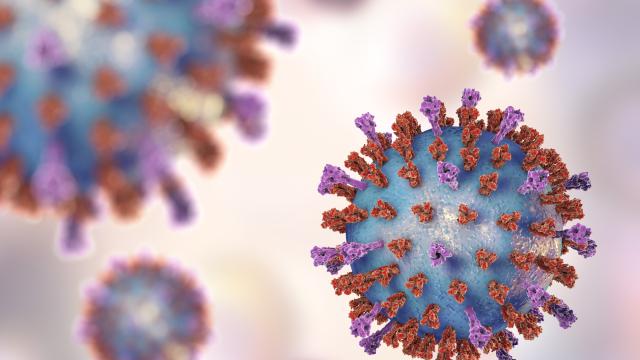Respiratory Viruses
Respiratory viruses can cause the common cold and influenza-like illness.
While you may be familiar with these illnesses—and have likely had them before—you may not be as familiar with all the different viruses that cause them.
Data
The weekly respiratory report retired on May 23, 2025. See the weekly respiratory surveillance data for past reports. All information from the weekly respiratory report will be found in the respiratory virus data visualizations for the 2025-2026 respiratory season.
To access the respiratory illness data, visit the interactive respiratory virus data visualizations.
Respiratory virus information
COVID-19
Learn the best ways to prevent and treat COVID-19 and what to do if you test positive.
Influenza (Flu)
Find information about flu prevention, when to seek medical advice, and data.
RSV
Read about the signs and symptoms of RSV. Learn who is most likely to get serious complications if they get sick with RSV.
Adenovirus
Adenoviruses are a group of viruses that cause a range of illnesses, including common cold, fever, bronchitis, sore throat, and pink eye.
Seasonal Coronaviruses
Coronaviruses are a large family of viruses that can cause mild to moderate illness.
HMPV
HMPV illnesses are mostly diagnosed in young children, older adults, and people with weakened immune systems.
Outbreaks in Long-Term Care Facilities
Find guidance for preventing and controlling acute respiratory illness outbreaks in Wisconsin long-term care facilities.
Parainfluenza
Parainfluenza viruses cause respiratory illnesses that are most common in infants and young children, though anyone can be infected.
Rhinovirus/Enterovirus
About 50% of common colds are caused by some kind of rhinovirus. Most infected people have no symptoms or only mild symptoms, but some infections can be serious.
People at higher risk
Though most people will only experience mild to moderate symptoms from a respiratory virus, some people may get seriously ill or even die. Those with weakened immune systems, infants, older adults, and those with existing lung or heart conditions are at a higher risk of developing severe illness. See our People at Higher Risk webpage for more information on what it means to be part of these groups.
Communication resources
An informative fact sheet explaining the similarities and differences between different respiratory viruses.
Download respiratory virus fact sheet
Flyer with instructions on how to properly wash hands.
An informative fact sheet explaining what steps you should take when you are sick with a respiratory virus.
Download respiratory illnesses fact sheet
Flyer about the differences between the flu, a cold, and whooping cough.
For health care providers
Download toolkit for health care providers (Word)
For K–12 schools and early care and education programs
For people who are pregnant
Download toolkit for pregnant people (Word)
For local and Tribal health departments
Download toolkit for local and Tribal health departments (Word)
- Download the Microsoft Word document F-80025A (Word) this form can be used to order multiple forms and/or publications.
- Complete the form by tabbing through the input fields, not by using the return or enter key.
- Email the completed form to the DHS forms manager at dhsfmorder@dhs.wisconsin.gov.
- If you have questions about ordering forms or publications, please email the DHS forms manager at dhsfmorder@dhs.wisconsin.gov or call 608-267-9054.
Questions about respiratory viruses? Contact us!
Phone: 608-267-9003 | Fax: 608-261-4976































